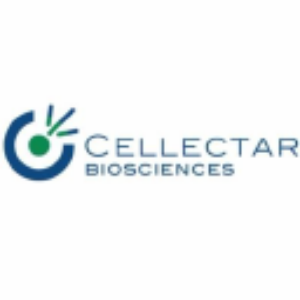Cellectar Biosciences Announces Enrollment of the First Patient in Pediatric High-Grade Gliomas Phase 1b Clinical Study
Study of Iopofosine I 131 Supported by
FLORHAM PARK, N.J., Jan. 30, 2024 (GLOBE NEWSWIRE) -- Cellectar Biosciences, Inc. (NASDAQ: CLRB), a late-stage clinical biopharmaceutical company focused on the discovery, development and commercialization of drugs for the treatment of cancer, today announced the first patient has been enrolled in its Phase 1b clinical trial evaluating iopofosine I 131, a novel phospholipid radiotherapeutic conjugate, in pediatric patients with relapsed or refractory malignant high-grade gliomas (pHGG).
“Treatment of pediatric patients with relapsed and refractory high-grade glioma and ependymoma is extremely challenging. There are limited treatment options and high unmet clinical need for patients suffering from this aggressive cancer,” said Dr. Sameer Farouk Sait, pediatric hematologist-oncologist and assistant attending at Memorial Sloan Kettering Cancer Center. “Iopofosine I-131’s recently reported complete central nervous system clearance in a relapsed, refractory Bing-Neel Syndrome patient and demonstrated clinical activity across the blood-brain barrier in other hematologic malignancies, which included a complete response in a relapsed/refractory primary CNS lymphoma patient, is highly encouraging. The novel MOA is exciting, and we look forward to evaluating iopofosine’s efficacy and safety with the goal of providing a meaningful treatment to pediatric patients and hope to their families.”
The open-label study (NCT05610891) will assess two dosing regimens to identify the optimal iopofosine I 131 Phase 2 recommended dose and schedule in pHGG patients and evaluate safety and tolerability. The study is supported by a
“We understand the profound impact pediatric high-grade gliomas have on the lives of young patients and their families,” commented James Caruso, president and CEO of Cellectar. “There exists an urgent need for more effective, targeted therapies for this vulnerable population and we are rapidly advancing further evaluation of our lead phospholipid radioconjugate therapy in this important indication. Iopofosine I 131 showed great promise in our Phase 1a study, demonstrating the ability to cross the blood brain barrier and provide sustained progression free survival that compares favorably to historical data. We are hopeful its novel MOA will provide a meaningful treatment option for these young patients.”
About Pediatric High-Grade Gliomas (pHGG)
Pediatric high-grade gliomas are aggressive malignant tumors that form in the brain or spinal cord of children, adolescents, and young adults. Comprising a small but devastating portion of childhood cancers with an approximate incidence rate of 1,300 patients in the US (1.1-1.178 per 100,000 children), these tumors originate in the glial cells of the brain and spinal cord and are known for their rapid growth and resistance to conventional treatments. They are also responsible for over
About Cellectar Biosciences, Inc.
Cellectar Biosciences is a late-stage clinical biopharmaceutical company focused on the discovery and development of proprietary drugs for the treatment of cancer, independently and through research and development collaborations. The company’s core objective is to leverage its proprietary Phospholipid Drug Conjugate™ (PDC) delivery platform to develop the next-generation of cancer cell-targeting treatments, delivering improved efficacy and better safety as a result of fewer off-target effects.
The company’s product pipeline includes lead asset iopofosine I 131, a small-molecule PDC designed to provide targeted delivery of iodine-131 (radioisotope), proprietary preclinical PDC chemotherapeutic programs and multiple partnered PDC assets.
For more information, please visit www.cellectar.com and www.wmclinicaltrial.com or join the conversation by liking and following us on the company’s social media channels: Twitter, LinkedIn, and Facebook.
Forward-Looking Statement Disclaimer
This news release contains forward-looking statements. You can identify these statements by our use of words such as "may," "expect," "believe," "anticipate," "intend," "could," "estimate," "continue," "plans," or their negatives or cognates. These statements are only estimates and predictions and are subject to known and unknown risks and uncertainties that may cause actual future experience and results to differ materially from the statements made. These statements are based on our current beliefs and expectations as to such future outcomes including our expectations regarding the WM CLOVER-WaM pivotal trial. Drug discovery and development involve a high degree of risk. Factors that might cause such a material difference include, among others, uncertainties related to the ability to raise additional capital, uncertainties related to the disruptions at our sole source supplier of iopofosine, the ability to attract and retain partners for our technologies, the identification of lead compounds, the successful preclinical development thereof, patient enrollment and the completion of clinical studies, the FDA review process and other government regulation, our ability to maintain orphan drug designation in the United States for iopofosine, the volatile market for priority review vouchers, our pharmaceutical collaborators' ability to successfully develop and commercialize drug candidates, competition from other pharmaceutical companies, product pricing and third-party reimbursement. A complete description of risks and uncertainties related to our business is contained in our periodic reports filed with the Securities and Exchange Commission including our Form 10-K for the year ended December 31, 2022, and our Form 10-Q for the quarter ended September 30, 2023. These forward-looking statements are made only as of the date hereof, and we disclaim any obligation to update any such forward-looking statements.
Contacts
MEDIA:
Claire LaCagnina
Bliss Bio Health
315-765-1462
clacagnina@blissbiohealth.com
INVESTORS:
Chad Kolean
Chief Financial Officer
investors@cellectar.com










